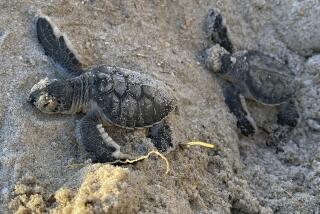Sudan ready to ignore any Darfur warrants
Sudanese officials on Friday largely shrugged off reports that the International Criminal Court’s chief prosecutor is seeking the arrest of the country’s president on charges of genocide and crimes against humanity, reiterating their rejection of the court’s authority.
Officials also discounted fears that Sudan would retaliate against United Nations peacekeepers and aid workers if warrants are issued, but warned that such an action would disrupt peace efforts and unite Sudanese citizens against outside interference.
The ICC’s chief prosecutor, Luis Moreno-Ocampo, plans to submit evidence Monday of crimes committed against civilians in Sudan’s Darfur region since 2003 and, officials said, will ask judges to issue arrest warrants for President Omar Hassan Ahmed Bashir on allegations of genocide and crimes against humanity.
Sudan, which is not a party to the ICC, has ignored indictments against State Minister Ahmed Haroun and a militia leader, and is expected to brush off any action Monday against the president.
“We’ve been expecting this,” said Ali Sadiq, spokesman for the Foreign Ministry.
Sudan has even threatened to try Moreno-Ocampo in a Sudanese court for “terrorism” after he tried to apprehend and arrest Haroun as he was about to go to Saudi Arabia. Haroun abandoned the journey.
Sadiq warned that warrants could hurt peace efforts.
“To indict a head of state will create chaos,” he said.
He dismissed concerns that the government might retaliate against U.N. and aid groups, despite recent attacks on humanitarian workers and peacekeepers. He said they should fear rebel groups emboldened by any ICC move.
Political analysts said warrants could weaken Bashir.
“If people see that the government itself could be indicted . . . they won’t respect those in power,” said Adam Azzain Mohammed of the University of Khartoum.
--
--
maggie.farley@latimes.com
--
Sanders reported from Addis Ababa and Farley from the United Nations.
More to Read
Start your day right
Sign up for Essential California for news, features and recommendations from the L.A. Times and beyond in your inbox six days a week.
You may occasionally receive promotional content from the Los Angeles Times.






